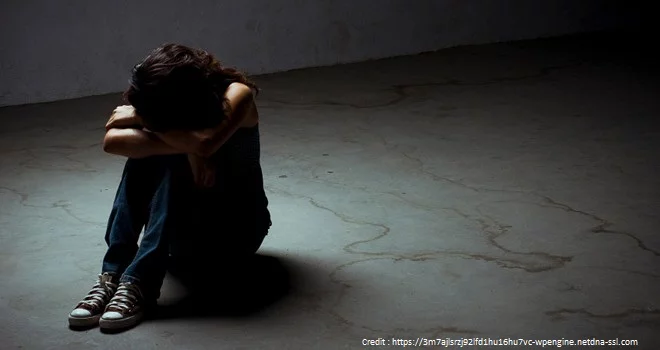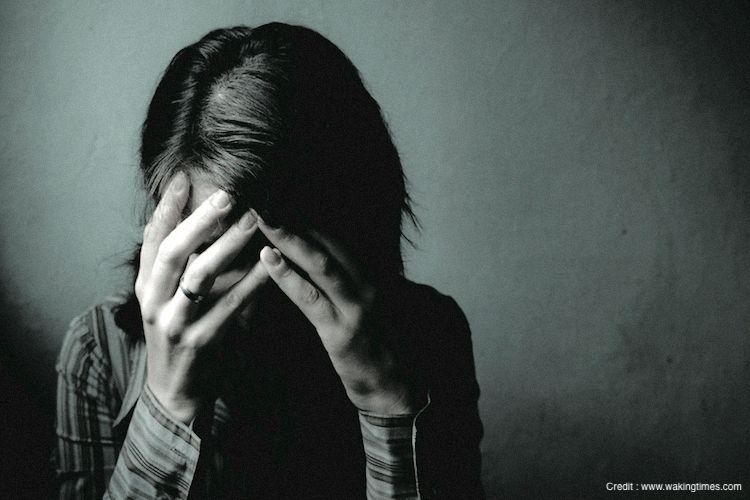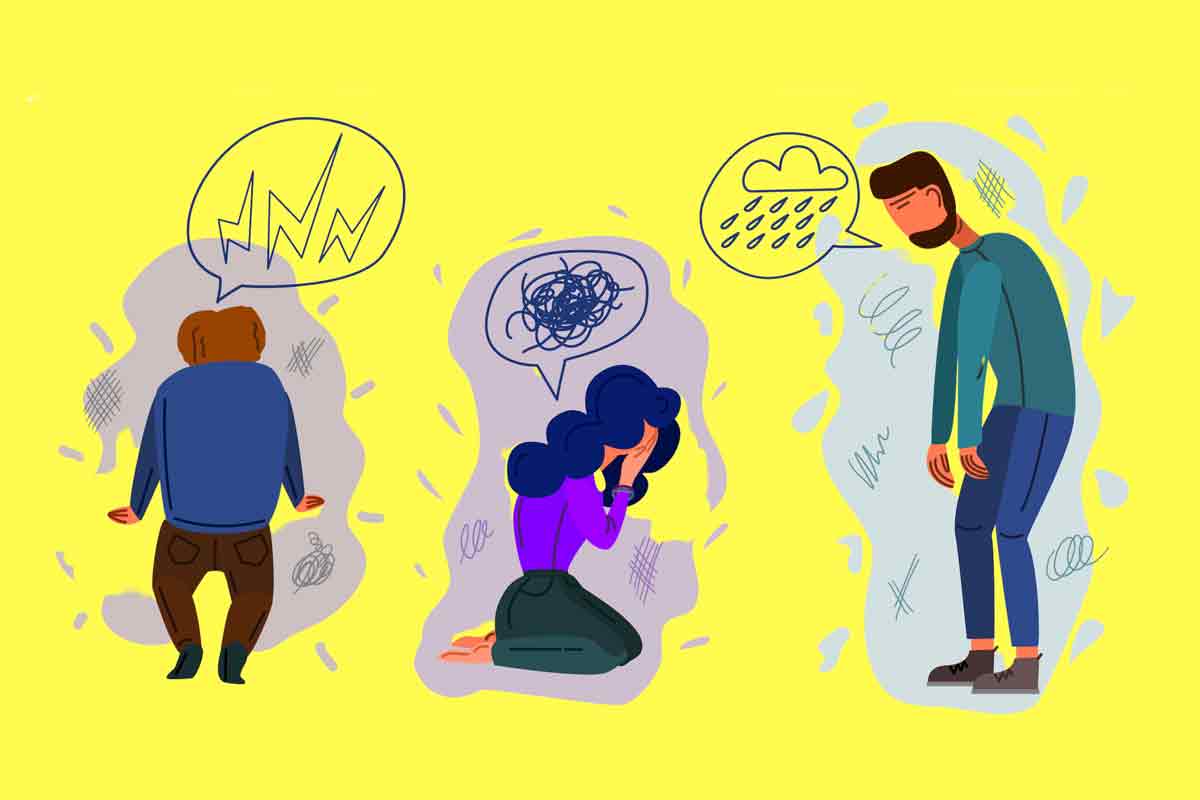[vc_row css_animation=”” row_type=”row” use_row_as_full_screen_section=”no” type=”full_width” angled_section=”no” text_align=”left” background_image_as_pattern=”without_pattern” el_class=”detox-row-1″ css=”.vc_custom_1511071973241{margin-top: -30px !important;padding-top: 150px !important;padding-bottom: 150px !important;background-image: url(https://thedawnrehab.com/wp-content/uploads/2017/09/ectasy-header-1.jpg?id=1069) !important;}”][vc_column][vc_column_text el_class=”banner”]
WHAT IS TRAUMA? Understanding the Symptoms AND TYPES OF TRAUMA & PTSD
[/vc_column_text][/vc_column][/vc_row][vc_row css_animation=”” row_type=”row” use_row_as_full_screen_section=”no” type=”grid” angled_section=”no” text_align=”left” background_image_as_pattern=”without_pattern” el_class=”detox-row-2″][vc_column][vc_column_text el_class=”detox-title-1″ css=”.vc_custom_1507055094046{padding-top: 80px !important;}”]
A Safe Place to Heal
Trauma/PTSD Programme at The Dawn Rehab Thailand
[/vc_column_text][vc_column_text el_class=”detox-text-1″ css=”.vc_custom_1527760173404{padding-top: 40px !important;}”]
At The Dawn, we offer programme that focuses on treating trauma and PTSD on its own, along with a separate integrated treatment model to treat trauma disorders, such as PTSD and addiction. Our model incorporates numerous evidence-based methods to ensure that our clients receive the best help possible.
If you or someone you care about needs help with trauma and PTSD, addiction or mental health issues then contact us today to receive a no-obligation assessment and learn more about how we can help you. You can also call us on one of our toll-free numbers listed on our Contact Us page.
[/vc_column_text][vc_separator type=”small” position=”center” color=”#e8c26a” thickness=”2″ width=”40″ up=”20″ down=”20″][vc_row_inner row_type=”row” type=”full_width” text_align=”left” css_animation=”” css=”.vc_custom_1505560361677{padding-top: 80px !important;}” el_class=”detox-row-3″][vc_column_inner width=”1/3″ css=”.vc_custom_1504934897578{padding-right: 20px !important;padding-bottom: 60px !important;padding-left: 20px !important;}”][icon_text box_type=”normal” icon=”fa-trophy” icon_type=”circle” icon_position=”top” icon_size=”fa-3x” use_custom_icon_size=”no” title=”World-Class Trauma & PTSD Specialist” separator=”yes” separator_top_margin=”15px” separator_bottom_margin=”15px” text=”Our highly certified clinical team has decades of experience treating all forms of Trauma & PTSD” icon_border_color=”#333333″ icon_color=”#333333″ title_color=”#111111″ separator_color=”#333333″ text_color=”#333333″ icon_hover_color=”#ffffff”][/vc_column_inner][vc_column_inner width=”1/3″ css=”.vc_custom_1504934902899{padding-right: 20px !important;padding-bottom: 60px !important;padding-left: 20px !important;}”][icon_text box_type=”normal” icon=”fa-diamond” icon_type=”circle” icon_position=”top” icon_size=”fa-3x” use_custom_icon_size=”no” title=”1:1 Client to Staff Ratio” separator=”yes” separator_top_margin=”15px” separator_bottom_margin=”15px” text=”We offer the highest quality care and service to ensure all clients are well supported.” icon_border_color=”#333333″ icon_color=”#333333″ title_color=”#111111″ separator_color=”#333333″ text_color=”#333333″ icon_hover_color=”#ffffff”][/vc_column_inner][vc_column_inner width=”1/3″ css=”.vc_custom_1504934912011{padding-right: 20px !important;padding-bottom: 60px !important;padding-left: 20px !important;}”][icon_text box_type=”normal” icon=”fa-anchor” icon_type=”circle” icon_position=”top” icon_size=”fa-3x” use_custom_icon_size=”no” title=”AFTERCARE PROGRAMME” separator=”yes” separator_top_margin=”15px” separator_bottom_margin=”15px” text=”We offer a structured online aftercare support to provide you with the care and guidance to overcome your addiction.” icon_border_color=”#242321″ icon_color=”#242321″ title_color=”#111111″ separator_color=”#333333″ text_color=”#333333″ icon_hover_color=”#ffffff”][/vc_column_inner][/vc_row_inner][/vc_column][/vc_row][vc_row css_animation=”” row_type=”row” use_row_as_full_screen_section=”no” type=”grid” angled_section=”no” text_align=”left” background_image_as_pattern=”without_pattern” css=”.vc_custom_1505560391991{padding-top: 40px !important;padding-bottom: 70px !important;}” el_class=”detox-row-6″][vc_column][vc_column_text el_class=”skinny”]
What is Trauma?
[/vc_column_text][vc_separator type=”small” position=”center” color=”#e8c26a” thickness=”2″ width=”100″ up=”20″ down=”20″][vc_column_text el_class=”skinny” css=”.vc_custom_1527760212431{padding-bottom: 40px !important;}”]
Trauma and PTSD, or Post-Traumatic Stress Disorder, is a mental health issue that is triggered by a traumatic event. It can occur as a result of either witnessing or experiencing such events and includes symptoms such as severe anxiety, nightmares, uncontrollable thoughts and flashbacks. Many individuals who go through terrifying events may have a hard time coping or adjusting for some time, but do not develop PTSD since self-care and time can help them to recover. However, symptoms that worsen or last up for several months or years, and hinder regular functioning are usually signs of trauma and PTSD.
[/vc_column_text][vc_separator type=”normal” color=”#e8c26a” thickness=”2″ up=”20″ down=”20″][/vc_column][/vc_row][vc_row css_animation=”” row_type=”row” use_row_as_full_screen_section=”no” type=”grid” angled_section=”no” text_align=”left” background_image_as_pattern=”without_pattern” css=”.vc_custom_1506930821901{padding-top: 0px !important;padding-bottom: 70px !important;}” el_class=”detox-row-8″][vc_column][vc_column_text el_class=”skinny”]
What are the Symptoms of Trauma?
[/vc_column_text][vc_separator type=”small” position=”center” color=”#e8c26a” thickness=”2″ width=”100″ up=”20″ down=”20″][vc_column_text el_class=”detox-text-1″ css=”.vc_custom_1527760237968{padding-top: 40px !important;}”]
It has been firmly established that memory plays an important role in trauma symptoms. These symptoms, or reactions, can range from chronic low-level anxiety and/or insomnia, which may seem unrelated to environmental triggers, to an excessive startle reflex, such as when rage occurs as a response to a seemingly mild criticism or a door slamming. Most people that have these symptoms will turn to self-medicating with substances like alcohol or drugs in an effort to control their malfunctioning nervous systems.
We have to frame these symptoms inside the memory paradigm in order to understand the nature of trauma. For nearly 130 years, it has been documented that trauma imprints are stored as physical movements and feelings in our bodies instead of narratives about unfavourable events in our past, which means that we experience them as immediate threats in the present time.
[/vc_column_text][vc_column_text el_class=”skinny”]
At The Dawn, we provide:
[/vc_column_text][vc_separator type=”small” position=”center” color=”#e8c26a” thickness=”2″ width=”100″ up=”20″ down=”20″][vc_row_inner row_type=”row” type=”grid” text_align=”left” css_animation=”” el_class=”detox-row-10″][vc_column_inner width=”1/3″ css=”.vc_custom_1504934897578{padding-right: 20px !important;padding-bottom: 60px !important;padding-left: 20px !important;}”][icon_text box_type=”normal” icon=”fa-user-o” icon_type=”circle” icon_position=”top” icon_size=”fa-lg” use_custom_icon_size=”no” separator=”no” text=”One-on-one counselling”][vc_separator type=”small” position=”center” color=”#e8c26a” thickness=”2″ width=”40″ up=”20″ down=”20″][/vc_column_inner][vc_column_inner width=”1/3″ css=”.vc_custom_1504934902899{padding-right: 20px !important;padding-bottom: 60px !important;padding-left: 20px !important;}”][icon_text box_type=”normal” icon=”fa-users” icon_type=”circle” icon_position=”top” icon_size=”fa-lg” use_custom_icon_size=”no” separator=”no” text=”Group counselling”][vc_separator type=”small” position=”center” color=”#e8c26a” thickness=”2″ width=”40″ up=”20″ down=”20″][/vc_column_inner][vc_column_inner width=”1/3″ css=”.vc_custom_1504934912011{padding-right: 20px !important;padding-bottom: 60px !important;padding-left: 20px !important;}”][icon_text box_type=”normal” icon=”fa-leaf” icon_type=”circle” icon_position=”top” icon_size=”fa-lg” use_custom_icon_size=”no” separator=”no” text=”Safe and Peaceful Environment”][vc_separator type=”small” position=”center” color=”#e8c26a” thickness=”2″ width=”40″ up=”20″ down=”20″][/vc_column_inner][/vc_row_inner][vc_row_inner row_type=”row” type=”grid” text_align=”left” css_animation=”” el_class=”detox-row-11″][vc_column_inner width=”1/3″ css=”.vc_custom_1504934897578{padding-right: 20px !important;padding-bottom: 60px !important;padding-left: 20px !important;}”][icon_text box_type=”normal” icon=”fa-pagelines” icon_type=”circle” icon_position=”top” icon_size=”fa-lg” use_custom_icon_size=”no” separator=”no” text=”Holistic and alternative therapies”][vc_separator type=”small” position=”center” color=”#e8c26a” thickness=”2″ width=”40″ up=”20″ down=”20″][/vc_column_inner][vc_column_inner width=”1/3″ css=”.vc_custom_1504934902899{padding-right: 20px !important;padding-bottom: 60px !important;padding-left: 20px !important;}”][icon_text box_type=”normal” icon=”fa-tree” icon_type=”circle” icon_position=”top” icon_size=”fa-lg” use_custom_icon_size=”no” separator=”no” text=”TRE and Cognitive Therapies”][vc_separator type=”small” position=”center” color=”#e8c26a” thickness=”2″ width=”40″ up=”20″ down=”20″][/vc_column_inner][vc_column_inner width=”1/3″ css=”.vc_custom_1504934912011{padding-right: 20px !important;padding-bottom: 60px !important;padding-left: 20px !important;}”][icon_text box_type=”normal” icon=”fa-bell-o” icon_type=”circle” icon_position=”top” icon_size=”fa-lg” use_custom_icon_size=”no” separator=”no” text=”Weekly excursions”][vc_separator type=”small” position=”center” color=”#e8c26a” thickness=”2″ width=”40″ up=”20″ down=”20″][/vc_column_inner][/vc_row_inner][vc_separator type=”normal” color=”#e8c26a” thickness=”2″ up=”20″ down=”20″][/vc_column][/vc_row][vc_row css_animation=”” row_type=”row” use_row_as_full_screen_section=”no” type=”full_width” angled_section=”no” text_align=”left” background_image_as_pattern=”without_pattern” css=”.vc_custom_1507054678035{padding-top: 80px !important;padding-right: 20px !important;padding-bottom: 70px !important;padding-left: 20px !important;background: #dfaf3d url(https://thedawnrehab.com/wp-content/uploads/2017/09/ecstast-cta-bg-1.jpg?id=1079) !important;background-position: center !important;background-repeat: no-repeat !important;background-size: cover !important;}” el_class=”detox-row-5″][vc_column el_class=”white”][vc_custom_heading text=”GET HELP WITH TRAUMA TODAY” font_container=”tag:h3|font_size:32|text_align:center|line_height:1″ google_fonts=”font_family:Playfair%20Display%3Aregular%2Citalic%2C700%2C700italic%2C900%2C900italic|font_style:400%20regular%3A400%3Anormal” el_class=”text_uppercase heading_400″][button icon_pack=”font_elegant” fe_icon=”arrow_carrot-right” target=”_self” hover_type=”default” text_align=”center” text=”Contact us today” link=”/contact-us” color=”#ffffff” hover_color=”#ffffff” hover_background_color=”#efcc40″ icon_color=”#ffffff” background_color=”#cb8f00″ border_color=”#cb8f00″ hover_border_color=”#efcc40″][/vc_column][/vc_row][vc_row css_animation=”” row_type=”row” use_row_as_full_screen_section=”no” type=”grid” angled_section=”no” text_align=”center” background_image_as_pattern=”without_pattern”][vc_column][image_hover target=”_self” animation=”yes” image=”1091″ hover_image=”1099″ transition_delay=”1″][/vc_column][/vc_row][vc_row css_animation=”” row_type=”row” use_row_as_full_screen_section=”no” type=”grid” angled_section=”no” text_align=”left” background_image_as_pattern=”without_pattern” css=”.vc_custom_1505359201089{padding-top: 10px !important;padding-bottom: 20px !important;}”][vc_column][vc_separator type=”normal” color=”#e8c26a” thickness=”2″ up=”20″ down=”20″][/vc_column][/vc_row][vc_row css_animation=”” row_type=”row” use_row_as_full_screen_section=”no” type=”full_width” angled_section=”no” text_align=”left” background_image_as_pattern=”without_pattern” css=”.vc_custom_1506570253578{padding-top: 60px !important;padding-bottom: 60px !important;background-image: url(https://thedawnrehab.com/wp-content/uploads/2017/09/bg-thaipattern.jpg?id=190) !important;}” el_class=”aa-row-3 jedi-tabs”][vc_column el_class=”white”][vc_column_text el_class=”da-title”]
Other forms of Trauma
[/vc_column_text][qode_advanced_tabs title_layout=”with_icon” title_tag=”h2″][qode_advanced_tab icon_pack=”font_awesome” icon=”fa-angle-down” tab_title=”Big T Trauma (Shock Trauma)”][vc_column_text]
Big T Trauma (Shock Trauma)
Big T Trauma is caused by a severely traumatic event that may or may not implicate physical trauma. The event could be experienced by the person who is suffering from the trauma or witnessed by another person. These kinds of events might involve acts of extreme sexual and/or physical violence. They also might be experienced in the community where the person is living, through political acts or war, or inside their home as acts of family or domestic violence.
Other examples of these events include:
- Natural disasters
- Transportation accidents
- Abrupt, unforeseen death within close relationships
- Shock trauma is generally the experience of significant unanticipated or unwanted loss.
[/vc_column_text][/qode_advanced_tab][qode_advanced_tab icon_pack=”font_awesome” icon=”fa-angle-down” tab_title=”Small T Trauma”][vc_column_text]
Small T Trauma
Small T trauma is best described as rather common life events that a person experiences as distressing. These events do not appear to be significant at surface level and any particular event may have no significance. However, the emotional impact that the experience has on the person is significant and causes it to become traumatic. What may exacerbate the trauma is other people’s dismissal regarding the weight of the emotional impact.
Oftentimes Small T trauma also falls in the complex trauma category, which we will discuss in greater detail below. A common phrase that can be used to describe Small T trauma is objects in the mirror are closer than they appear. Viewing these events in an objective manner does not provide an accurate depiction of the impact that is subjective to the person.
Examples of Small T trauma include:
- Losing a job
- Being teased or bullied in school
- The loss of a pet
- Parent’s divorce
- Losing friends
- Poverty
- Changing schools or home
- A learning condition
- Being threatened or ignored
[/vc_column_text][/qode_advanced_tab][/qode_advanced_tabs][/vc_column][/vc_row][vc_row css_animation=”” row_type=”row” use_row_as_full_screen_section=”no” type=”grid” angled_section=”no” text_align=”left” background_image_as_pattern=”without_pattern” css=”.vc_custom_1507056440558{padding-top: 80px !important;padding-bottom: 30px !important;}” el_class=”detox-row-6″][vc_column][vc_column_text el_class=”skinny”]
Complex Trauma
[/vc_column_text][vc_separator type=”small” position=”center” color=”#e8c26a” thickness=”2″ width=”100″ up=”20″ down=”20″][vc_column_text el_class=”skinny” css=”.vc_custom_1527760763773{padding-bottom: 40px !important;}”]
Complex trauma describes form of wounding that could fall into both Big T and Small T trauma categories. The reason that they are complex is that the experiences or events are recurring, extended and cumulative. This type of trauma can also happen within specific contexts or relationships. For example, relational trauma is a form of complex trauma that takes place in a person’s family of origin while developmental trauma happens during main psychological development times like childhood and adolescence.
Other forms of complex trauma can happen during domestic abuse or multiple military deployments. It can also occur while being exploited by an authority figure or a person in power, such as if an authority figure at work or school used their power to manipulate their own agenda at the person’s expense. In other instances, complex trauma may occur when a person is in a vulnerable phase, such as old age, disability, dependency or disempowerment.
[/vc_column_text][/vc_column][/vc_row][vc_row css_animation=”” row_type=”row” use_row_as_full_screen_section=”no” type=”grid” angled_section=”no” text_align=”left” background_image_as_pattern=”without_pattern” css=”.vc_custom_1505359201089{padding-top: 10px !important;padding-bottom: 20px !important;}”][vc_column][vc_separator type=”normal” color=”#e8c26a” thickness=”2″ up=”20″ down=”20″][/vc_column][/vc_row][vc_row css_animation=”” row_type=”row” use_row_as_full_screen_section=”no” type=”full_width” angled_section=”no” text_align=”left” background_image_as_pattern=”without_pattern” css=”.vc_custom_1506447916689{padding-top: 60px !important;padding-right: 20px !important;padding-bottom: 60px !important;padding-left: 20px !important;background: #dfaf3d url(https://thedawnrehab.com/wp-content/uploads/2017/09/form-bg-1.jpg?id=1198) !important;background-position: center !important;background-repeat: no-repeat !important;background-size: cover !important;}” el_class=”jedi-contact-row”][vc_column el_class=”white”][vc_custom_heading text=” WE ARE HERE TO HELP. CONTACT US TODAY.” font_container=”tag:h3|font_size:24|text_align:center” google_fonts=”font_family:Montserrat%3Aregular%2C700|font_style:400%20regular%3A400%3Anormal”]
Error: Contact form not found.
[/vc_column][/vc_row]
 Trauma Therapy – How to Overcome a Painful Past and Create a Better Future
Many people who seek trauma therapy suffer consequences of one or more traumatic events in their life. Even though many find ways to process trauma effectively and eventually resolve their...
Trauma Therapy – How to Overcome a Painful Past and Create a Better Future
Many people who seek trauma therapy suffer consequences of one or more traumatic events in their life. Even though many find ways to process trauma effectively and eventually resolve their...
 Trauma-Focused Cognitive Behavioural Therapy – An Effective Method of Overcoming Trauma
Traumatic life events can have a severe impact on anyone who goes through them. However, children and adolescents are especially vulnerable to the effects of trauma. It can quickly take...
Trauma-Focused Cognitive Behavioural Therapy – An Effective Method of Overcoming Trauma
Traumatic life events can have a severe impact on anyone who goes through them. However, children and adolescents are especially vulnerable to the effects of trauma. It can quickly take...
 Childhood Trauma: Causes, Symptoms and Treatment Techniques That Can Help You Move Forward
The National Institute of Mental Health in the United States defines childhood trauma as, ‘’The experience of an event by a child that is emotionally painful or distressful, which often results in...
Childhood Trauma: Causes, Symptoms and Treatment Techniques That Can Help You Move Forward
The National Institute of Mental Health in the United States defines childhood trauma as, ‘’The experience of an event by a child that is emotionally painful or distressful, which often results in...
 Triggered: Understanding Trauma Triggers and How to Manage Them
Your heart is racing, your palms are sweating and your thoughts are in an anxious jumble – you’ve just been triggered. Preparing for triggers, and having an array of techniques...
Triggered: Understanding Trauma Triggers and How to Manage Them
Your heart is racing, your palms are sweating and your thoughts are in an anxious jumble – you’ve just been triggered. Preparing for triggers, and having an array of techniques...





